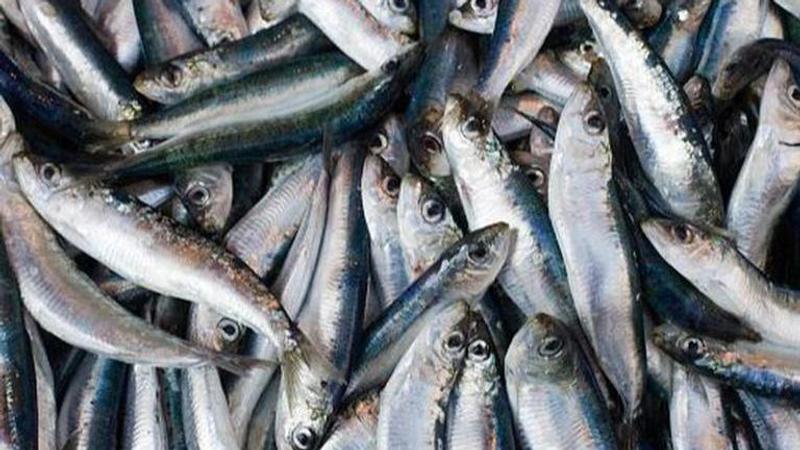Published 18:48 IST, February 21st 2022
Chile: Thousands of dead anchovies and sardines wash ashore on beach
In an unusual incident, thousands of dead sardines and anchovies washed ashore on a Chilean beach off the coast of the Coliumo peninsula on February 20.

Thousands of dead sardines and anchovies washed ashore on a Chilean beach off the coast of the Coliumo peninsula on February 20. To establish the reason for the occurrence, environmental officials are analysing the water quality in the location, which is located off the shore of the Coliumo peninsula. Low oxygen levels in deeper waters, according to some locals, could be the cause of the deaths, forcing fish to migrate closer to the shore in quest of oxygen.
Anchovy (Engraulis ringens) is a small pelagic fish that lives near the ocean's surface in the southeastern Pacific Ocean. It is commonly obtained off the shores of Peru and Chile. They live for up to four years and have a brief yet productive life cycle. There are four different populations of anchovies that can be found throughout the southeast Pacific coast from Ecuador to southern Chile.
These stocks are managed separately by Chile and Peru, but both governments are interested in long-term conservation. Peru has two seasons per year in which to set fishing regulations based on effective monitoring using seasonal surveys that estimate abundance. Additional oceanographic data is gathered as well. The seasonal fishing limit is allocated by the Peruvian fishery management agency (PRODUCE), but there is no defined harvest control rule in place.
Chile, on the other hand, controls anchovy fishing populations using indirect stock evaluations that are cross-referenced with surveys. The Chilean fishing administration has well-defined reference points, and the quotas allocated aim to drive fisheries toward maximum sustainable yield (MSY), where a precise harvest management rule may be defined. Both countries keep an eye on the management of fisheries.
Large trawler dumps 100,000 dead fish off the coast of France
In a similar incident, on February 5, more than 100,000 dead fish were released into the Atlantic Ocean by a Dutch-owned trawler off the coast of western France, generating a floating carpet of carcasses that was discovered by environmental activists. The photographs were described as terrible by France's fisheries minister, Annick Girardin, who said an investigation into the circumstances surrounding the event involving the FV Margiris, the world's second-largest fishing vessel, would be conducted.
Virginijus Sinkevicius, the EU Commissioner for Environment, Oceans and Fisheries, said he was looking for exhaustive information and facts about the issue. According to the Pelagic Freezer-Trawler Association (PFA), which represents the vessel's owner, the spill was triggered by a breach in the trawler's net, which occurred on February 3. The incident was described as a "extremely rare occurrence" in a statement.
An environmental group contested that storey, claiming that over 100,000 unwanted fish were released illegally. Sea Shepherd's French arm was the first to publish photographs of the leak, which showed a 3,000 sq m (32,300 sq ft) blanket of blue whiting, a subspecies of cod used to mass-produce fish fingers, fish oil, and meal, covering the ocean's surface.
Sea Shepherd is a non-profit organisation dedicated to France believes the event was caused by the trawler's effort to dump a species of fish it didn't want to process, a technique known as "discharging bycatch" that is prohibited under EU fishing regulations.
(With agency inputs, Image: Unsplash)
Updated 18:48 IST, February 21st 2022




